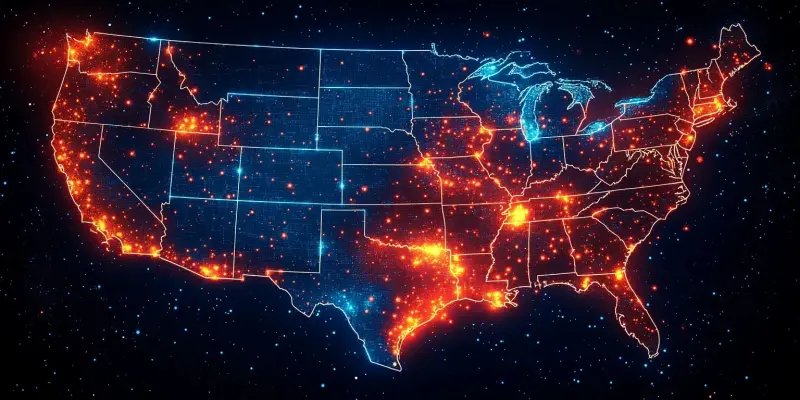In a climate where cyber threats are becoming increasingly sophisticated and persistent, recent moves within the U.S. federal government to implement mass layoffs of probationary workers have raised significant alarm. Former cybersecurity director at the National Security Agency (NSA), Rob Joyce, during a hearing before the House Select Committee on the Chinese Communist Party, warned about the potential negative impact of such job cuts on national security. Joyce emphasized that the uncertainty created by these layoffs within federal agencies could drive critical cybersecurity talent towards the private sector, thereby weakening the nation’s cyber defenses and leaving it vulnerable to adversaries like China.
Impact on Cybersecurity Talent
Uncertainty Driving Talent Departure
According to Joyce, the unique skills and expertise of federal cybersecurity employees are instrumental in combating advanced cyber adversaries. The fear is that mass layoffs will push these highly skilled workers to seek opportunities in the private sector, where job security may be more assured. Emma Stewart, chief power grid scientist at the Idaho National Laboratory, echoed this sentiment. She remarked on the critical contributions federal agencies like the Cybersecurity and Infrastructure Security Agency (CISA) make in identifying and mitigating cyber threats. Stewart highlighted how CISA has made substantial progress over the years in its mission to protect national cyber infrastructure by alerting allies and organizations about potential security vulnerabilities.
This exodus of skilled cybersecurity professionals poses a severe risk as these individuals are essential in defending against the growing sophistication of cyber threats. If critical talent is lost to the private sector, federal agencies might find themselves unable to respond effectively to emerging cyber challenges. The importance of maintaining a robust and stable cyber workforce cannot be overstated, as these professionals possess the knowledge and capabilities to counter sophisticated attacks that threaten national security.
Reducing Government Spending: A Double-Edged Sword
The push for job cuts came as part of the Trump administration’s broader initiative to reduce government spending and eliminate alleged fraud and waste within federal agencies. This led to significant reductions, including approximately 130 positions cut at CISA in mid-February. Overall, around 400 roles were eliminated at the Department of Homeland Security (DHS), saving about $50 million. Unfortunately, these cuts primarily targeted non-mission-critical probationary workers, inadvertently affecting the morale and stability within these agencies.
While reducing government spending is a necessary goal, the approach of mass layoffs raises critical concerns about the unintended consequences on cybersecurity capabilities. Experts argue that cutting these positions could undermine the very efforts needed to ensure the country’s safety against persistent and evolving cyber threats. Such cuts might appear to offer immediate fiscal benefits, but the long-term cost of diminished cybersecurity resources and capabilities could far outweigh the initial savings obtained through these job reductions. As adversaries like China continue to refine their cyber tactics, the weakening of the U.S.’s cyber defenses could have dire implications.
Disbanding Cyber Safety Agencies
Impact on Threat Response Effectiveness
In a further move that raised eyebrows, the Trump administration dismantled the Cyber Safety Review Board in January, an agency that was investigating Chinese-backed cyber threats, most notably the Salt Typhoon group. This group is known for its connections to significant hacks targeting major U.S. telecommunications. The dismantling of the Cyber Safety Review Board adds another layer of concern regarding the nation’s ability to effectively respond to persistent cyber threats.
The dissolution of such a critical agency has sparked fears that the United States might be less equipped to handle complex cyber espionage and interference orchestrated by foreign entities. Active investigations and the proactive measures undertaken by agencies like the Cyber Safety Review Board are crucial in keeping at bay the cyber-onslaught from groups linked to adversarial nations. The absence of such oversight and proactive measures means that the U.S. might face challenges in detecting, analyzing, and thwarting sophisticated cyber threats.
Broader Implications for National Security
The overarching consequence of these workforce reductions and agency disbandments is the potential jeopardization of national security efforts. Experts like Joyce and Stewart consistently underscore the vital role that a robust cyber workforce plays in safeguarding the nation’s infrastructure. The threat landscape is constantly evolving, with adversaries continually developing more advanced and stealthier methods of attack.
The experts’ consensus is clear: maintaining a skilled and comprehensive cyber workforce is paramount to countering the increasing cyber threats posed by adversarial nations. The focus must shift towards a balanced approach that recognizes the importance of fiscal responsibility without compromising national security. Policymakers are urged to consider the long-term implications of their decisions and ensure that the cybersecurity workforce remains adequately equipped and prepared to face the challenges posed by sophisticated and relentless cyber adversaries.
Navigating Future Cybersecurity Challenges
In an era where cyber threats are increasingly sophisticated and persistent, recent actions by the U.S. federal government to execute mass layoffs of probationary employees have raised significant concerns. This issue was highlighted by Rob Joyce, a former cybersecurity director at the National Security Agency (NSA), during a hearing before the House Select Committee on the Chinese Communist Party. Joyce warned about the potential negative consequences of such job cuts on national security. He emphasized that the uncertainty sparked by these layoffs within federal agencies could push crucial cybersecurity talent towards the private sector. This shift would ultimately weaken the country’s cyber defenses, leaving it vulnerable to adversaries like China. According to Joyce, the depletion of skilled cybersecurity professionals in the public sector could make it easier for cybercriminals and international threats to exploit the nation’s infrastructure. The stakes are particularly high as the U.S. confronts evolving cyber attacks from sophisticated adversaries.

